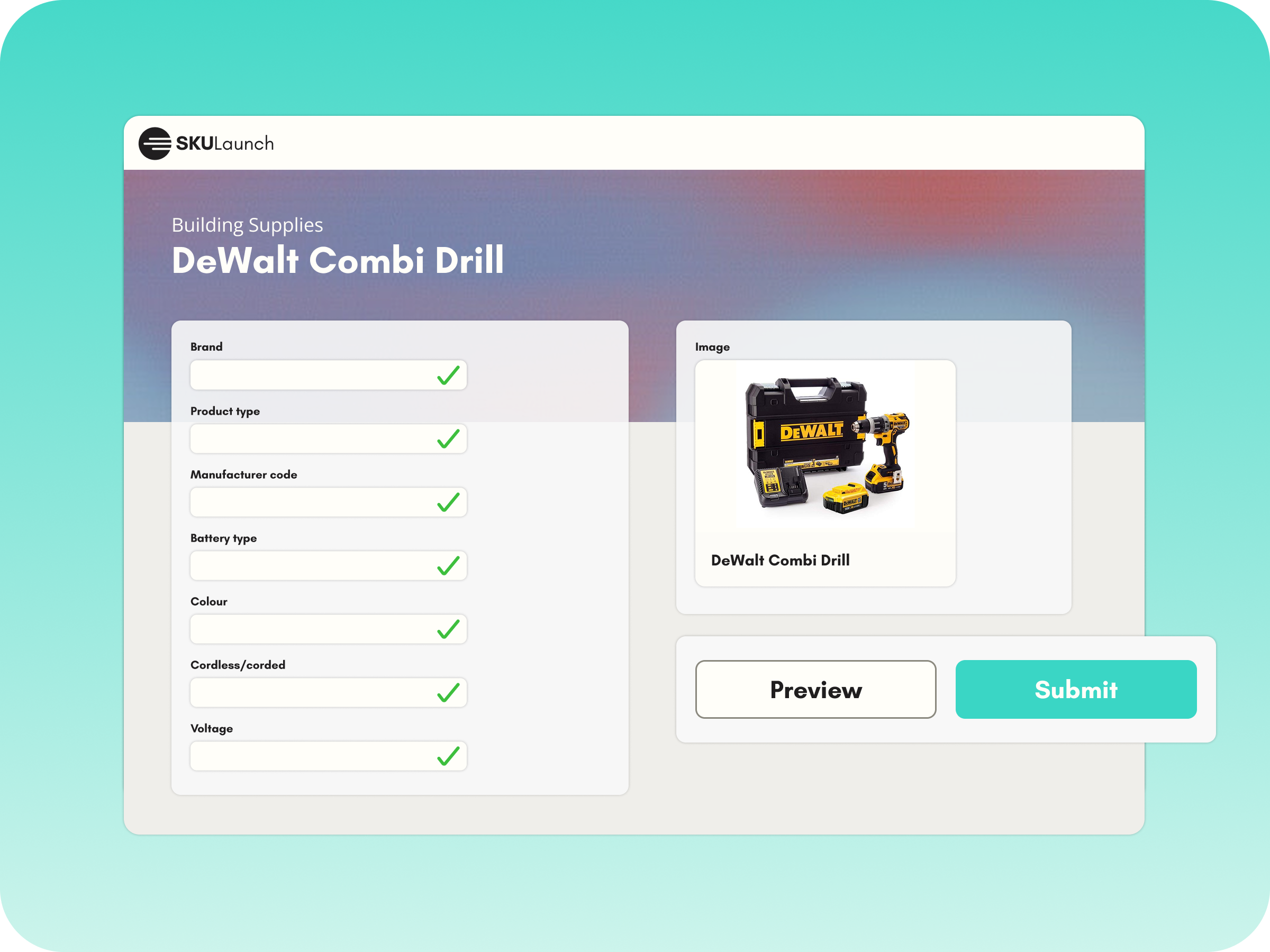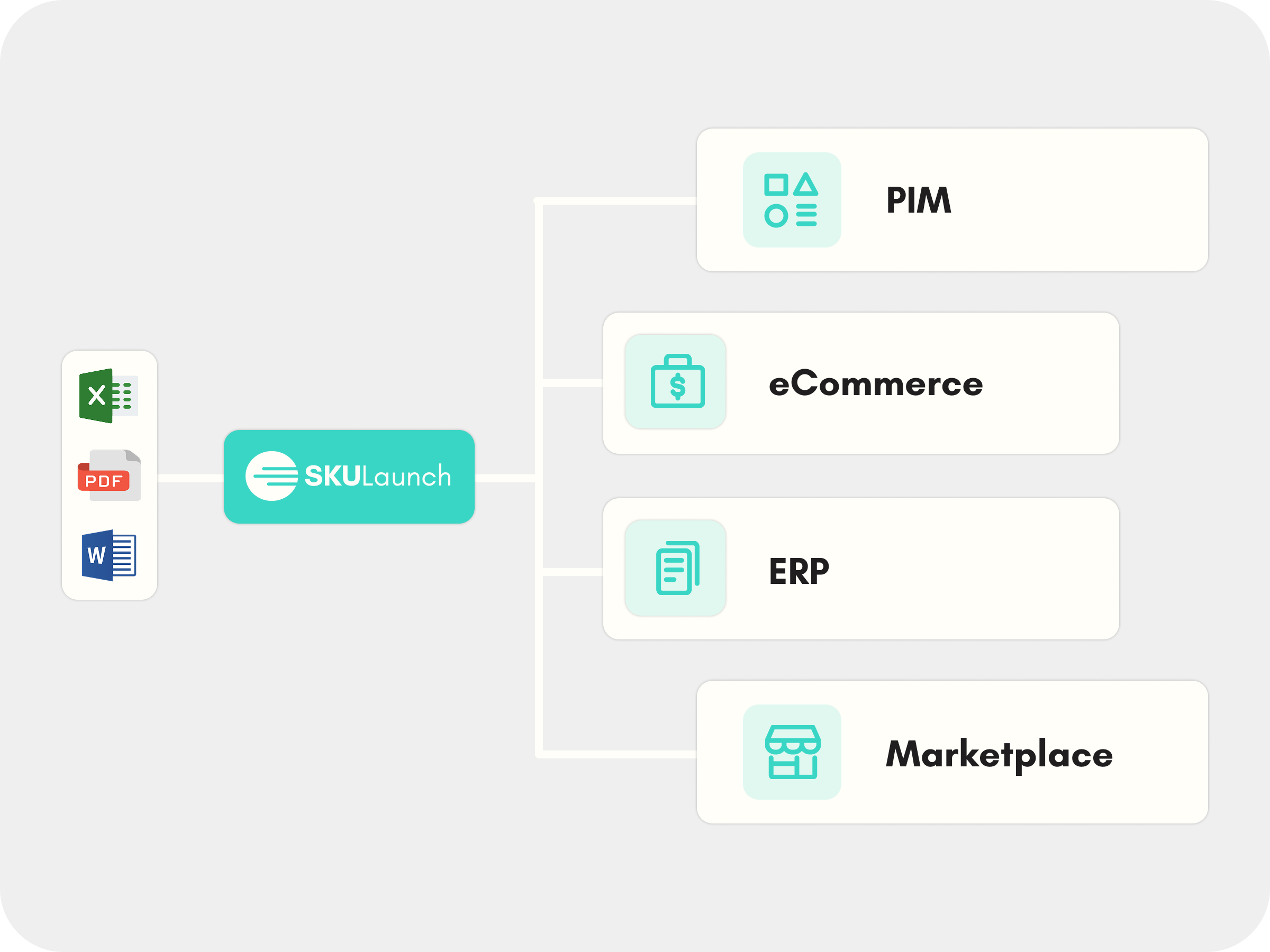Ensure Consistent, High-Quality Product Data
Retailers and distributors rely on supplier data to get products live fast—but inconsistent, incomplete, or error-filled product information slows launches, creates costly rework, and damages customer trust. With suppliers sending files in dozens of formats and quality standards varying widely, ensuring data accuracy across channels is a constant challenge.
Poor product data doesn’t just cause delays. It leads to misinformed customers, higher returns, and lost sales opportunities. For businesses trying to launch thousands of SKUs, manual validation simply can’t keep pace.
Chellenges when validating supplier data
Not addressing the latent chaos around supplier data formats
One of the first hurdles in the race to integrate supplier data is the sheer variety of formats it comes in. Suppliers frequently provide product information in a range of formats – it could range from simple spreadsheets and CSV files to more complex XML or even proprietary formats. In any case, having to manually wrangle this “data chaos” is not only an inefficient way of deploying valuable employee time, but is also likely to spawn a whole load of errors which, sooner or later, are going to cause you headaches.
Overlooking the importance of data quality checks
Simply receiving product data on trust from a supplier isn’t enough, regardless of how reliable they may be. It’s a fundamental of digital commerce that the data is accurate, complete, and meets your specific standards. A failure to implement robust data quality checks is a recipe for substandard CX, lost sales, returns and poor searchability.
Think about the impact of missing product descriptions, incorrect dimensions, or inconsistent units of measure. Customers rely on this information to make informed purchasing decisions. If your data is flawed, it leads to returns, negative reviews, and a poor overall CX.
Poor communication with suppliers
Effective communication is a key part of the product data onboarding process. When problems emerge with supplier data – and they often do – the absence of clear and efficient communication causes significant delays in dealing with these problems.
For instance, if you spend excessive time trying to chase down suppliers for missing information, or clarification on a specific product attribute, this back-and-forth can be cumbersome and costly in terms of the knock-on impact on your Time-to-Market.
How SKULaunch solves these challenges
At SKULauch, we understand exactly what pain points businesses have while onboarding and validating supplier product data. That’s why we developed our AI-powered product data onboarding platform – precisely to address the three key mistakes we’ve discussed.
Automated Validation
Checks accuracy, completeness, and formatting of every SKU in real time before it hits your systems.
Multi-Format Ingestion
Accepts spreadsheets, PDFs, spec sheets, and more—transforming them into structured, compliant data instantly.
Granular Control
Attribute-level approval and rejection ensures only the right information gets through.
What’s more, for businesses that need extra support, our optional SKUConcierge service offers a managed solution for comprehensive data handling, from sourcing to standardisation. This can be a commercial life-saver for those businesses which may lack the resources or expertise to manage this process internally.
Our validation processes
To give you a more rounded view of our services, here’s a quick run-down of the process:

1
Identifying missing product information
Before sourcing missing data, SKULaunch first assesses what’s missing and prioritises the gaps, based on their importance. This could include:
- Technical specs (dimensions, weight, materials…)
- Compliance details (certifications, regulatory requirements…)
- Marketing content (product descriptions, feature highlights…)
- Digital assets (high-quality images, instruction manuals…)
Reliable sources for missing product data
2
SKULaunch then sources missing product information from a combination of trusted and verified sources to guarantee accuracy. These include:
- Industry and regulatory databases
- Trusted third-party data providers
- Web scraping[1] and AI-Based data extraction
2



Continuous monitoring and real-time updates
3
To be clear, validating supplier data is not a one-time process. Product information change frequently, so ongoing monitoring and updating is a must. Businesses using SKULaunch never have to manually chase suppliers for the latest data because it continuously verifies and updates that information.
Stop firefighting supplier data issues and start launching products faster with confidence.
Book a demo today to see how SKULaunch validates supplier data at scale.
